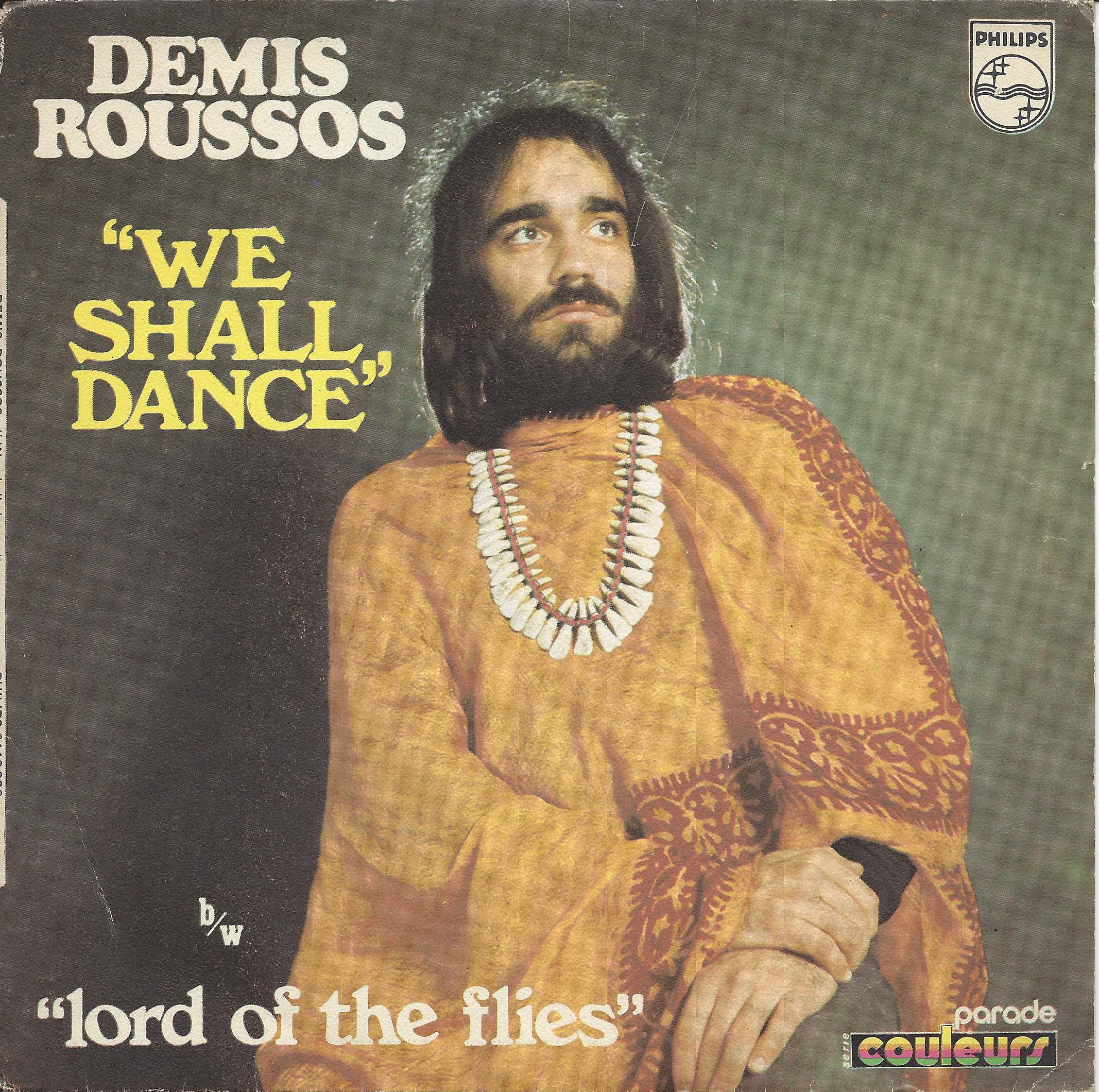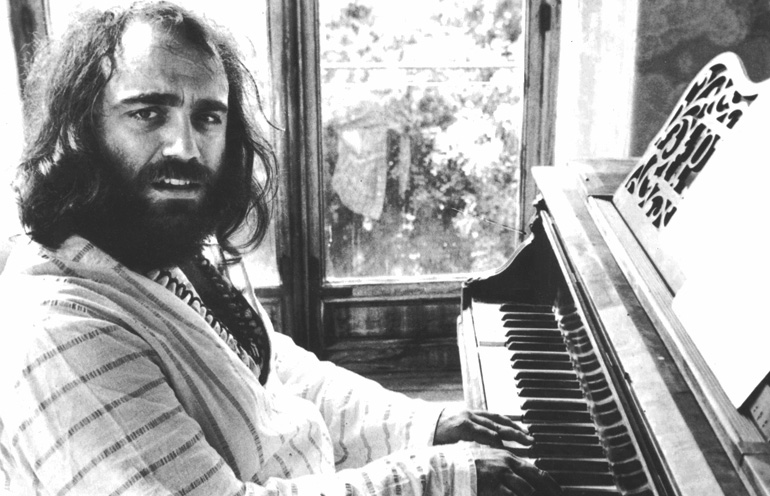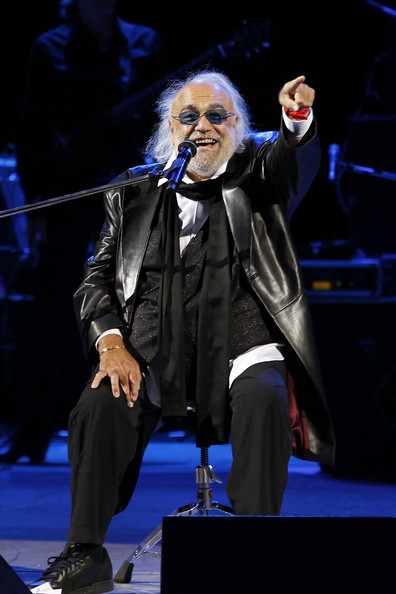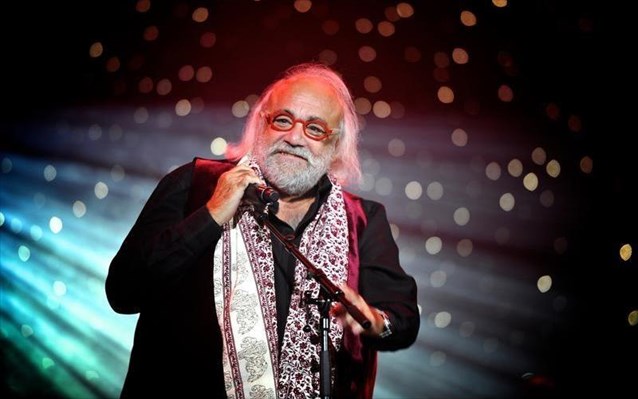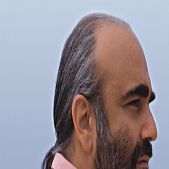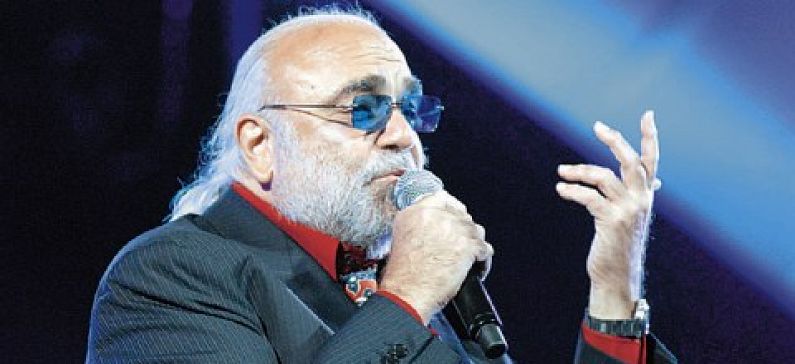
The life of a magnificent artist
Demis Roussos (Artemios Ventouris Roussos) was a Greek singer and musician who was originally known worldwide as a member the band of Aphrodite’s Child with Vangelis Papathanassiou and had a tremendous success, especially in the 1970s, and sold over 70 million albums worldwide.
He was born on June 15, 1946, in Alexandria, where he grew up with his parents, George and Olga, who were Greeks of Egypt. His mother was a well-known singer with the nickname Nelly Mazloum and his father a mechanic and classical guitarist. During his childhood, Roussos studied music and was a member of the Byzantine ecclesiastical choir of Alexandria. The Suez crisis left his family bankrupt, so they all moved to Greece.
After settling in Greece, Demis Roussos participated in various musical bands starting with the Idols at the age of 17, when he met Vangelis Papathanasiou and Luke Sideras, with whom he later formed Aphrodite’s Child.
He became known by a wider audience in 1967, as a member of the progressive rock band, Aphrodite’s Child’s -he was initially in the vocals and later the bassist. His distinctive vocal style helped the band in international success in France and other parts of Europe, from 1968 to 1972. In May 1968, Roussos, Papathanassiou and Sideras attempted to move to London, the international center of pop music at the time, and to follow their global career, though they were stopped at the borders due to entry problems. They were forced to go to Paris, amid riots, where they decided to stay, signing a contract with Philips Records.
Their first single was “Rain and Tears,” a composition by Vangelis and lyrics by Boris Berman, with Roussos singing with his characteristic voice. The single was released in the summer of 1968 across Europe and was a remarkable success in many countries. The band recorded several other singles and three albums, which have been internationally successful. The most remarkable is their swan song, the “666” disc, which is considered to be one of the most progressive rock records.
Roussos collaborated sporadically with Papathanassiou and Aphrodite’s Child, and in 1970 they recorded the soundtrack of the film “Sex Power” and Magic, in 1977. Their happiest collaboration was “Race to the End,” a musical adaptation of the musical theme by Oscar-winner “The Chariots of Fire”, also released in Spanish under the title “Tu Libertad”. In 1982, Roussos took part in the soundtrack of the movie “Blade Runner” with the song “Tales of the Future”.
Roussos’ personal career began in 1971 with the song “We Shall Dance”. Originally, he did not have commercial success, but through his tour in Europe, he soon became widely known as a top singer. His career reached its peak in the 1970’s with many successful releases. The song “Forever and Ever” climbed to the top of many charts in 1973, among them the British one, in 1976.
Other successes were “My Friend The Wind “,” My Reason “,” Velvet Mornings “,” Goodbye My Love, Goodbye “,” Someday Somewhere” and “Lovely Lady Of Arcadia”. In 1974, “White Sails”, an English version of the song “White, Red, Yellow, Blue” by Moutsis from “Simposio A” was released in 1972, marking a short period of collaboration with the Greek composer. It was equally popular in Europe, Latin America, the Middle East and Japan.
In 1973, Roussos made one of his first television appearances on the show “The Basil Brush Show” in Britain, by appearing on Nana Mouskouri’s TV show. In 1980, he was successful with Air Supply’s “Lost in Love” sung by him along with Florence Warner and Dick Morris in the saxophone.
After a period of silence and clinical depression in the 1980s, he returned in 1993 with “Insight” (also known as Morning has Broken), which received positive reviews. He then worked with the Dutch company BR Music to produce the albums “Immortel”, “Serenade” and “In Holland” using a variety of national and electronic styles.
Continuing the recordings and tours, in the spring of 2002, he made a successful tour in Britain when the “Forever and Ever” collection was released and reached No. 20 in the hit list. From 2006 to 2008, he was part of the Âge Tendre Et Têtes De Bois tour that included successful singers in France in the 1960s and 70s.
The last recording in Roussos’ studio was “Demis”, which was released on May 11, 2009. On June 25, 2010 he made his first appearance in Greece after 37 years, at a concert in Herodion at the Athens Festival, whose tickets were sold out in a few hours.
In September 2013, he was awarded the title of Knight of the Legion of Honor by the French Republic at a ceremony given at the French Embassy in Athens. “Greece is my first country, France is the second. Thank you both. I belong to both of them,” he said excitedly.
In addition, the Russian astronomer Timur Kizyakov gave his name (279226 Demisroussos) to the main zone asteroid discovered on 24 October 2009 by the Special Astrophysical Observatory of the Russian Academy of Sciences, near the town of Zelenczoskaja.
The beloved artist died in the morning of January 25, 2015, at the age of 68, at the Health Hospital in Athens, where he was hospitalized. His death was announced the following day through a tweet of his friend, Nikos Aliagas, show host, and later confirmed by his daughter, Emily. Well-known friends and former associates, such as Nana Mouskouri and Vangelis Papathanasiou, expressed their sorrow for his loss.
TIPS...
– Apart from the beard, the long hair, the expressive eyes and his familiar voice, one of the basic features of his standardized image was the djellaba. “I was touring Italy and it was a very hot day. At noon, I found a store selling valences. I bought it tongue on the cheek, but that day it saved me. I went to the concert with the djellaba, the crowd was excited, and the djellaba … stayed,” he had said in an interview with Kathimerini about how he started to wear that piece of clothing that became iconic to his image.
– In 1985, the singer was on a TWA flight that was hijacked by hijackers. But when they realized that among the passengers was Demis Roussos, they organized a small celebration for his birthday and he was one of the first to release.
– He had been a private, lonely person and dealt with a subject that afflicted him all his life, the subject of obesity, and, in 1982, he published the book “A Question of Weight

